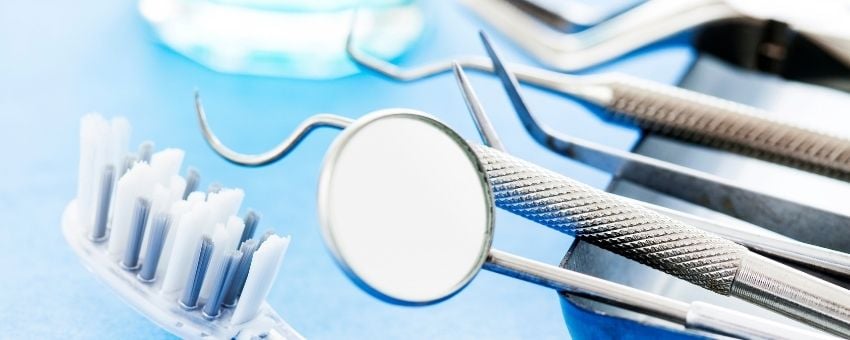Share this
Maximize Year-End Tax Strategies for Your Dental Practice
by Great Dental Websites on Jan 25, 2022 10:00:00 PM
Before the final quarter of 2021 ends, you may want to consider evaluating your tax strategies so you can take advantage of some opportunities to save money this year and in 2022.
While we’re going to share some potential areas of your dental practice you may want to think about investing in or improving upon for tax-related benefits, you should always consult your business tax advisor before making any final decisions.
Here are six things to evaluate that may lead to tax savings for your business from 2021.
Purchasing New Equipment

Modern equipment and technology improve patient comfort and experience at your dental practice while helping you to be more efficient during procedures so you can improve revenue. It could also be a potential tax write-off if you put it into place before December 31st.
Take stock of the equipment your dental practice needs and consult your CPA to see if you can write off all of the asset value, or if you should put it into a tax plan for next year.
Consider Cost Segregation
Purchasing your dental office, expanding your building, or making improvements and renovations to your current building can result in a significant tax deduction for your dental practice.
Consider getting a cost segregation study for your dental practice, which could allow you the opportunity to increase your depreciation expense, which then improves cash flow.
Ask your financial and tax planners if a cost segregation study might be right for your dental practice.
Look Into Prepaying Some of Next Year’s Expenses
An accelerated deduction allows you to prepay expenses for next year before December 31st for things like rent or supplies, and then you can take a tax deduction for those expenses for the current year.
Consider using a business credit card with a no-interest option to pay for those expenses now so you don’t impact your current cash flow with prepayments.
Investigate Maximizing Retirement, College, and Health Care Savings Accounts

It is essential to invest money back into your business, but it is also important to plan for your retirement. If you have a 401K plan, consider contributing the maximum amount. If you don’t have a 401K, consider contributing to an Individual Retirement Account (IRA).
Plan for your children’s future. A 529 plan allows you to save tax-free dollars in a college savings account for your kids.
Protect the health of your loved ones. Health Savings Accounts (HSA) allow you to contribute tax-free funds for medical expenses and healthcare.
Contact your tax advisor to determine if these accounts are right for you and your personal and business tax strategies.
Employee Retention Credits
A new tax credit created through the CARES Act is the Employee Retention Credit (ERC). This tax credit helps businesses that were impacted by COVID-19 who’ve kept employees on their payroll throughout the pandemic.
R & D Incentives

Research and development (R&D) tax credits are a lesser-known deduction but could result in substantial tax incentives for your dental practice.
Certain daily activities that dentists perform like treatment planning, oral surgeries, restoration procedures, and creating dental prosthetics might be able to earn R & D tax credits for your dental practice.
GDW partners with Leyton, who specializes in helping dentists take advantage of tax savings through programs like R&D tax incentives and Employee Retention Credits.
Final Thoughts
There’s still time to review your 2021 end-of-year expenses and apply them for tax credits. Remember, marketing services may also be deductible expenses, so be sure to report your ongoing marketing strategies to your tax advisor.
Let GDW help with marketing strategies or to get ahead on your planning for 2022 marketing.
Share this
- November 2024 (1)
- October 2024 (4)
- February 2024 (1)
- January 2024 (2)
- December 2023 (1)
- November 2023 (1)
- October 2023 (1)
- September 2023 (2)
- August 2023 (4)
- July 2023 (3)
- June 2023 (2)
- May 2023 (1)
- April 2023 (3)
- March 2023 (2)
- February 2023 (2)
- January 2023 (3)
- December 2022 (2)
- October 2022 (3)
- September 2022 (2)
- August 2022 (2)
- July 2022 (1)
- June 2022 (1)
- May 2022 (1)
- April 2022 (5)
- March 2022 (4)
- February 2022 (20)
- January 2022 (14)
- December 2021 (1)
- November 2021 (4)
- October 2021 (1)
- September 2021 (2)
- August 2021 (12)
- July 2021 (40)
- June 2021 (2)
- May 2021 (5)
- April 2021 (7)
- March 2021 (4)
- February 2021 (13)
- January 2021 (5)
- December 2020 (3)
- November 2020 (24)
- October 2020 (37)

